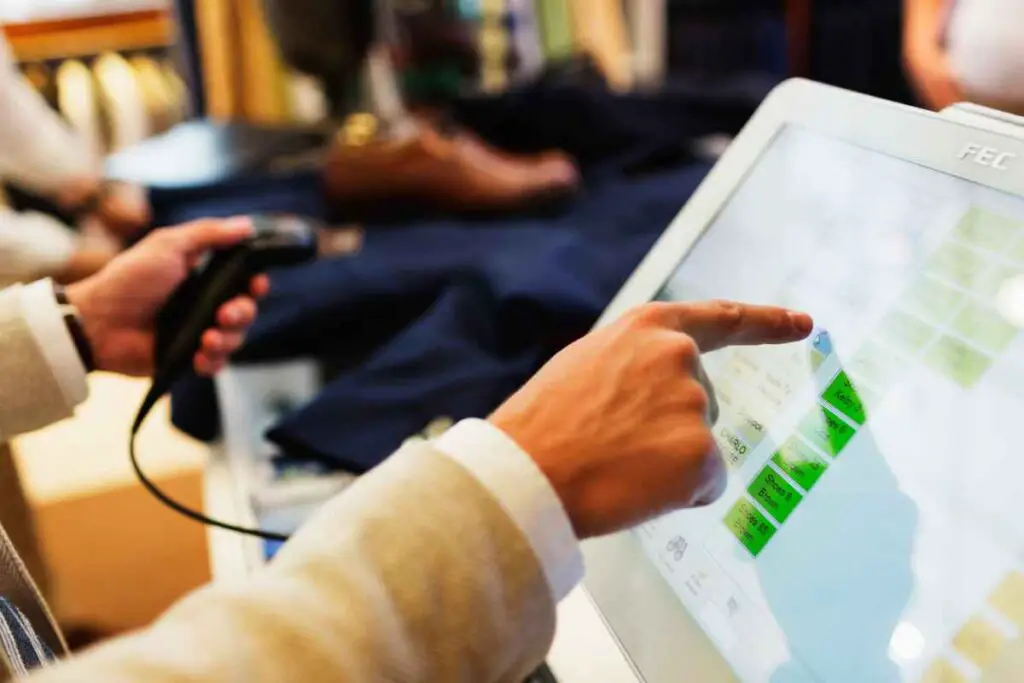POS software has always been a helping hand that has helped businesses from across the globe streamline their operations and manage complex challenges, and meet customer expectations.
The digitalising modern retail industry is essential for companies to stay competitive. Digitalizing helps retailers reduce costs, increase efficiency, enhance customer service, and gain access to valuable customer data. It also enables retailers to understand customer buying habits and preferences better, identify new opportunities, and create more personalised customer experiences.
Digitalizing also allows retailers to create new revenue streams through targeted marketing campaigns and online sales channels.
Digitalizing helps retailers stay ahead of the competition by providing them with the tools they need to analyse and respond to changes in the market quickly.

To help businesses with digitalisation, POS software is one of the most used tools. It allows companies to digitalisation and helps them modernise their retail experience.
Here we will try to break down some ways the integrations in POS software help businesses digitalize the modern retail industry.
Table of Contents
5 Ways POS Software Helps In Digitalizing Modern Retail Industry
1. Automated Inventory Management:
Point of sale (POS) systems provide real-time inventory tracking and management, allowing retailers to view their stock levels and availability easily. This helps them to identify areas where they can optimise their inventory, improving their supply chain and reducing costs.
Inventory management being one of the key areas for every business need special features, especially when it comes to digitalization. Here are some ways
- Streamlined Stock Levels:
POS software can help you keep better track of your inventory levels. You can use it to record every sale, adjust stock levels as needed, and get a better understanding of what’s in stock and when. This can help you avoid stock-outs, keep your shelves stocked with the right products, and manage your overall inventory more efficiently.
- Better Forecasting:
With POS software, you can better predict customer demand and plan. You can use the data from your sales history to anticipate customer trends and order the right amount of stock at the right time. This helps you avoid overstocking and reduces the risk of loss due to expired items.

- Automated Replenishment Systems:
POS software can also be used to set up automated replenishment systems. This means you can set a minimum stock level, and the system automatically orders more stock when the level gets too low. This saves you time and money, as you won’t have to monitor stock levels and place orders manually.
2. Enhanced Customer Experience:
POS integrations allow retailers to offer a more personalised customer experience. With customer data stored in the system, retailers can easily access customer purchase histories, allowing them to provide tailored promotions and discounts.
POS software is designed to streamline the customer checkout process and make it easier for customers to pay for products and services. It can eliminate manual data entry, enabling customers to complete transactions quickly and accurately.
Additionally, POS software can provide customers with detailed information about their purchases and loyalty programs, helping to create a more personalised overall experience.
By leveraging features such as order tracking, special offers, and customer service, businesses can ensure that their customers have a positive experience each time they interact with their company.
3. Streamlined Payments:
POS integrations allow for the seamless processing of payments, eliminating the need for manual cashier processes. This allows for faster checkout times and improved customer satisfaction.
Point of Sale (POS) software is a valuable tool for businesses that need to streamline payments. It helps to improve the checkout process, reduce costs, and make it easier for customers to pay.
- POS software can integrate different payment options, such as credit cards, debit cards, and cash, into one system. This reduces the time needed to process payments and decreases the risk of human error.
- It also provides businesses with a more secure way to process payments. POS software is designed to detect fraud and protect customer data. This makes it easier to protect against identity theft and other types of fraud.
- POS software also helps to increase efficiency by providing businesses with real-time reports and analytics. This makes tracking sales, managing inventory, and analysing customer behaviour easier.
Overall, POS software helps businesses to streamline payments and improve the customer experience. It saves time and money while providing customers with a secure and efficient way to pay.
4. Increased Security:
POS integrations allow for secure payments, reducing the risk of fraud and identity theft.
Point of sale (POS) software is integral to any retail business. It helps facilitate transactions and streamline processes for both customers and store owners. This makes it a critical component of modern retail operations.
POS software can also be used to increase security in a store. POS software can track inventory, monitor employee activity, and detect fraud. It can also be used to create a secure checkout process, which can be used to protect customers’ personal and financial information.
POS software can also monitor employee activity and limit access to certain store areas. This can help keep theft and other forms of misconduct to a minimum.
Overall, POS software is a great tool to help increase security in any retail business. It can help keep track of inventory, detect fraud, and create a secure checkout process. It can also monitor employee activity and limit access to certain store areas. This can help reduce the risk of theft and other forms of misconduct.
5. Improved Data Analysis:
POS integrations enable retailers to analyse sales and customer data in real-time, allowing them to make better-informed decisions about their business. This helps them maximise profits, reduce costs, and better understand their target audience.
POS software helps improve data analysis by providing retailers with a wide range of reporting and analytics features. These features enable retailers to better understand their customers’ spending habits and preferences, track inventory levels, analyse sales trends, and identify areas for improvement in their operations.
By leveraging the data gathered from POS software, retailers can better understand their customers’ needs, tailor their product offerings, and optimise their marketing initiatives.
Additionally, POS software can provide valuable insights into customer loyalty and satisfaction levels, enabling retailers to make more informed pricing, promotions, and customer service decisions.
Bottom Line
The modern retail industry heavily depends on digitalisation to remain competitive and successful. With the rise of e-commerce, digitalisation has become more critical for retailers to keep up with customer demands.
Digitalising processes such as inventory management, customer relationship management (CRM), and marketing can help retailers reduce costs, increase efficiency, and offer a better customer experience.
The role of POS software in the modern retail industry is to streamline operations and provide data-driven insights. A POS system helps retailers manage their inventory, process payments, track customer data, and generate sales reports.
Additionally, some POS systems come with analytics features, allowing retailers to understand their customers better and make informed decisions. This data can be used to optimise promotions, develop targeted marketing campaigns, and adjust pricing strategies. Furthermore, POS systems help retailers comply with applicable regulations and protect customers’ data.
In summary, digitalising processes and using POS software are essential for modern retailers to remain successful and competitive. Digitalisation helps retailers reduce costs, increase efficiency, and provide better customer experiences. In addition, POS systems can help retailers manage inventory, process payments, track customer data, and generate sales reports.
